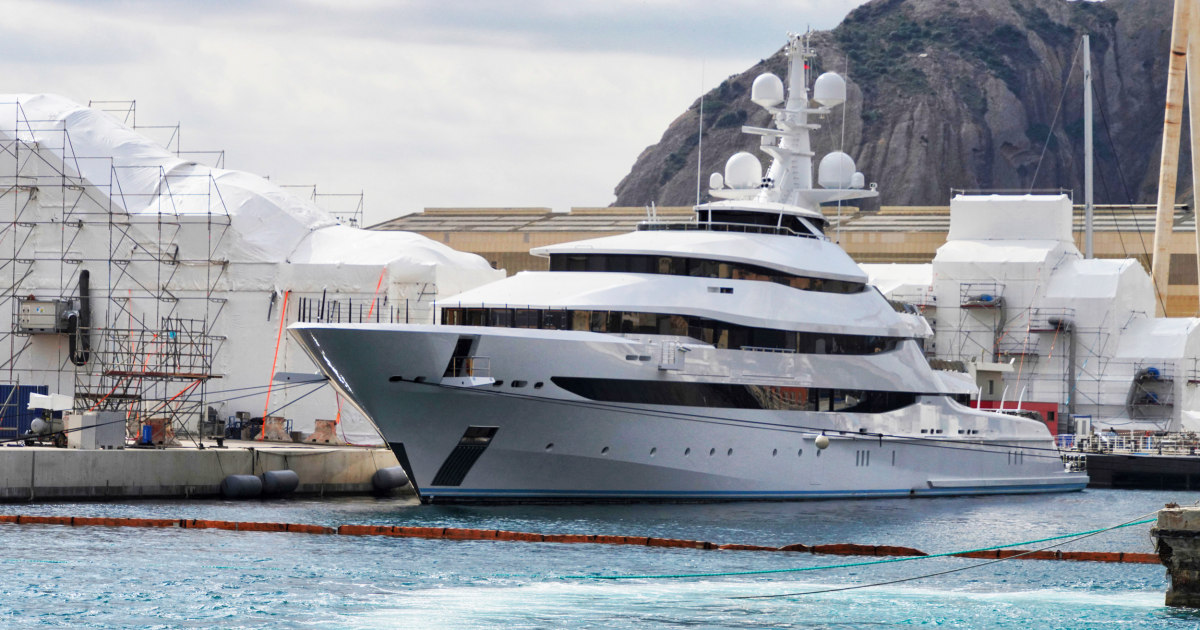
Princess Diana’s London residence was in Kensington Palace Gardens, and today the street — often called the most expensive in London — is home to some of the mega-rich not just from the U.K. but from around the world. To give just one prominent example, Russian billionaire Roman Abramovich owns a house there valued at more than $150 million.
Their money and power help them prop up adversarial, anti-democratic regimes — and interfere with our own exercise in representative government.
In early March, a nonprofit volunteer organization was created called Kensington Against Dirty Money. The group claims that “For too long, Kensington has been the epicenter of Britain’s dirty money problem.” According to research by Transparency International UK and Thomson Reuters, in 2016, about 44,000 property titles in London were owned by overseas companies, with 91 percent registered in secrecy jurisdictions that do not require information on the true owners of the companies. The result: Local London residents are being out priced as home values soar further into the stratosphere.
The impact of vastly wealthy foreign businesspeople on the real estate markets in Manhattan, Miami, Vancouver and what is now widely called “Londongrad” is the tip of the iceberg of global oligarchs’ far-reaching impact on Western economies and, most worryingly, security. Their money and power help them prop up adversarial, anti-democratic regimes — and interfere with our own exercise in representative government.
The threats that oligarchs and their like pose to Western democracy dare not be underestimated in an era when a major geopolitical challenge is the rise of autocracy and the increasing fragility of traditional democracies. The investigation into Russian interference in the 2016 U.S. election by special counsel Robert Mueller, for example, noted that funding for malicious Russian operations came from some of Russian President Vladimir Putin’s close oligarch associates.
Following Russia’s recent invasion of Ukraine, the West has finally started to confront this danger. The United States, which sanctioned some of the most powerful tycoons believed to be close to Putin after his capture of Crimea in 2014, has in recent days greatly expanded the list of Russian individuals and business targets. Then the U.S added that it was denying Russia most favored nation trade status and blocking exports of luxury goods to the country.
Meanwhile, the European Union, governing 27 countries, and the U.K. have woken up as well and introduced far-ranging sanctions of their own. They include U.K. freezes on all of Abramovich’s assets, which forced him to put the Chelsea soccer team up for sale.
Putin’s invasion of Ukraine has been the trigger for these actions, but they were long overdue. Now that they are finally being taken, why are Western authorities limiting their focus to Russians? After all, thousands of wealthy businesspeople with opaque relationships to authoritarian governments in dozens of countries have been laundering ill-gotten loot into Western investment assets, from valuable homes to masterworks of art to stocks and bonds.
Indeed, authoritarian regimes have used their power to steal from their people by, for example, pocketing tax revenues, claiming cash from state-owned enterprises and securing under-the-table kickbacks on public contracts. The schemes involve government leaders, their business cronies (i.e., oligarchs) and Western-based “enablers” in finance, law, property and art markets.
For too long, Western governments have tolerated these activities and failed to investigate the sources of tycoons’ wealth for no conceivable reason other than they have promoted commerce, providing incomes to banks, law firms, real estate companies and art dealers. In a number of cases, some of these tycoons have been prominent Western philanthropists. Vladimir Potanin, for example, one of the richest men in Russia, sat on the board of directors of New York’s Guggenheim Museum and gave grandly to support its exhibitions before resigning after the war started.
Most importantly, Western governments have for too long overlooked the security dangers global oligarchs have posed. That’s finally starting to change. The U.K., for instance, is now pushing an Economic Crime Bill through Parliament to strengthen disclosure requirements on foreign investors. Similarly, had it not been for the horrendous recent developments, the Senate might not have agreed last week in budget legislation to sharply increase funding for the U.S. Treasury’s anti-money laundering enforcement operations.
Seizing the assets of the oligarchs, of course, is far from easy. The Biden administration needed to establish a special Justice Department Task Force KleptoCapture to track down and prosecute the ill-gotten goods of Russian billionaires.
But we also find oligarch types operating closely with authoritarian regimes in Belarus, Azerbaijan, Egypt, Gabon, Nigeria, Venezuela, China and many more countries. They, too, can be caught through international legal actions — if the West’s governments have the will and the courage to extend their sanctions and enforcement beyond Russia.
The need for far greater, sustained efforts by Western governments to curb dirty money infiltrating our economies and prosecute corrupt businesspeople helping to undermine our security has been made crystal clear by recent events. We need to see far greater law enforcement funding and far greater coordination in investigations by Western governments, supported by widespread public understanding of the dangers.
The new campaign in Kensington based on grassroots activism is a good start. So, too, are the seizures of Russian-owned super yachts by the French and Germans. The general public can see the lavish homes and yachts and get a clearer appreciation of the wealth of these people, who have penetrated every corner of Western investment and finance while subject to the possible influence of some of the most ruthless political leaders in the world.
Source: | This article originally belongs to Nbcnews.com









